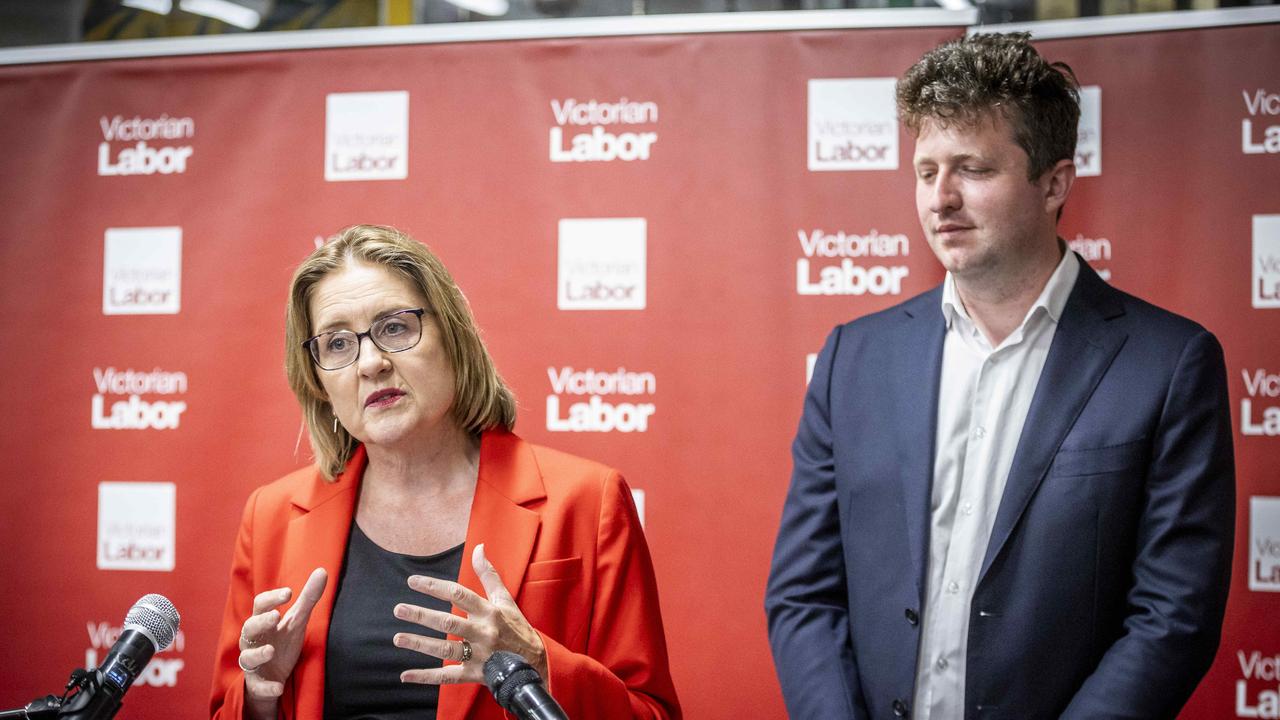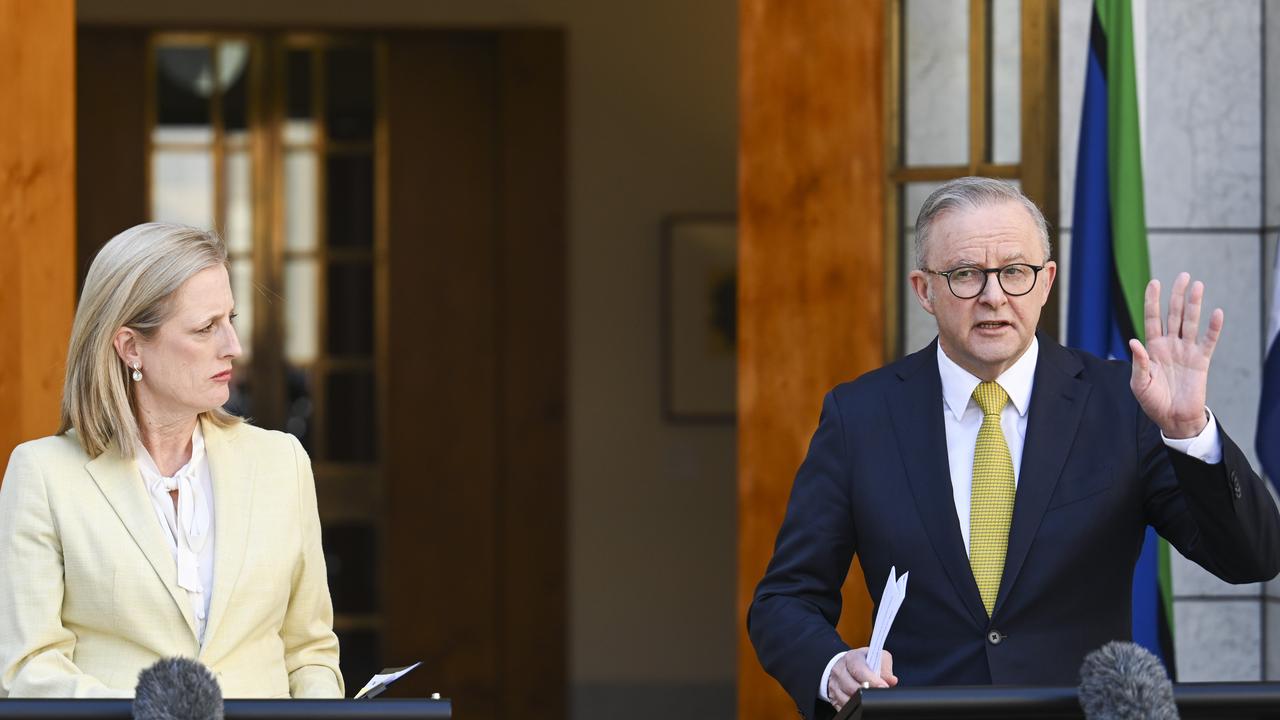
The first day of selling Jim Chalmers’ budget was meant to be all about Labor’s election promises – and it was.
The problem for the government was the focus was on the one impossible-to-keep promise of reducing electricity bills by $275 and the very one Labor didn’t want to talk about.
What’s more, fuelled by hotter-than-expected inflation, with an annual rate of 7.3 per cent on the back of rising gas prices, the issue of energy overshadowed all other budget measures promoted as help for families under financial pressure.
As the Treasurer and Anthony Albanese frenetically sought media airtime and planned parliamentary question time to focus on the fulfilled promises of “childcare, paid parental leave, moving wages, cheaper medicines and affordable housing”, the vacuum left by a flat budget was filled by fears about power prices.
Chalmers’ post-budget Press Club lunch address was a more relaxed rendition of his budget speech the previous night, but it developed parliamentary notoriety when it transpired he’d turned a deaf ear to the very question of how would Labor deliver that promised $275 cut.
Saying that despite his “big ears” he had misheard the question, Chalmers had to apologise for incorrectly saying the $275 cut was “in the budget” and only drew more attention to rising gas prices and the impossible-to-fulfil promise.
In his speech, Chalmers of the big ears, with the Prime Minister nodding along dutifully, listed the Labor promises and the economic benefits.
“Cheaper childcare because it helps more people, especially women, back into work,” he said. “The same goes for paid parental leave – good for participation, good for productivity. Cheaper medicines is a pretty simple example of an investment that recognises healthier people are more productive.
“Our agenda for housing affordability – and the new Accord at the centre of it – increasing supply in a sector of the economy that desperately needs it.”
But the figure of $275 never left his lips and didn’t even enter his ears.
Peter Dutton and opposition Treasury spokesman Angus Taylor used the figure at every opportunity and reminded Labor the promise had been made 97 times before the election, even after the war in Ukraine that Labor has used as a factor in the difficulty of keeping the promise.
Taylor said in his response that Labor “committed to a $275 reduction in electricity prices and they’re walking away from it”.
“This was a very real commitment,” he said. “There was a lot of noise around it, and they are walking away.”
The Opposition Leader will pursue the broken promise in his first budget reply speech on Thursday night.
It is now an inescapable political fact a flat budget that lacked a positive focus has come to be characterised not by the promises kept but by the promise broken against a background of global uncertainty and intense pressure on household budgets.
Chalmers is still looking at the long game, but the start has not been easy.



